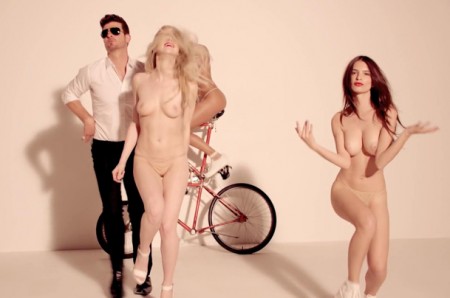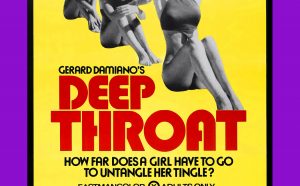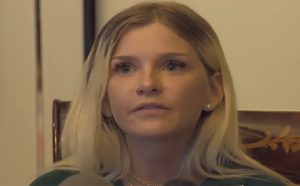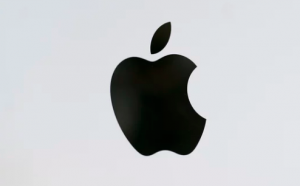Another student union has banned Robin Thicke’s party track. How did it become such a lightning rod for moral outrage and censorship?
This week, University College London student union (UCLU) took the unusual step of banning a single song, Robin Thicke’s Blurred Lines. It joins around 20 other UK student unions to do so. This is the latest development in the story of how the biggest song of the year became the most controversial of the decade: an unprecedented achievement, though not one that fills Thicke with pride.
It seems impossible that anyone with the faintest interest in popular culture could have missed either the song or the controversy, but here is a recap. At the end of March, mid-table R&B singer Thicke, along with producer Pharrell Williams and rapper TI, released Blurred Lines, a libidinous R&B party jam about a woman in a nightclub who may or not be interested in him. In April, one blogger branded it a “rape song”, and two months later Tricia Romano of the Daily Beast described it as “rapey”, a word that caught fire in other media outlets. The song might have escaped censure if the video, in which the three male performers goof around with scantily clad (and, in one version, topless) models, had not generated its own separate yet overlapping controversy.
Throughout the summer, as the song eclipsed even Daft Punk’s Get Lucky as the biggest hit of 2013, debate about its sexual politics heated up. In September, contributors to Project Unbreakable, a photographic project dedicated to rape survivors, held up placards comparing words spoken by their attackers to lines from the song. Also in September, Edinburgh University Students’ Association (EUSA) became the first student body to ban Blurred Lines.
“It promotes a very worrying attitude towards sex and consent,” explained Kirsty Haigh, EUSA’s vice-president of services. “This is about ensuring that everyone is fully aware that you need enthusiastic consent before sex. The song says: ‘You know you want it.’ Well, you can’t know they want it unless they tell you they want it.”
By that point, Thicke’s hit was part of a bigger debate about the messages of pop lyrics and videos. Miley Cyrus’s performance at the Video Music Awards in August, during which Thicke popped up like some kind of sex-pest Zelig, ignited another firestorm of indignation on several fronts. Recently, Netmums published a survey claiming that 80% of parents had found their children copying explicit lyrics or dance movies from music videos, while Annie Lennox called for videos to be regulated in the same way as movies. “I’m all for freedom of expression,” she began ominously, “but this is clearly one step beyond, and it’s clearly into the realm of porn. How do you stop your kids being exposed to it?”
This week, a tipping point has been reached. Lily Allen launched the video to her comeback single, Hard Out Here, which takes aim at music industry sexism with specific reference to the Blurred Lines video. And three women’s organisations launched the Rewind&Reframe campaign, with a four-pronged strategy: to enable young women to air their grievances about music videos, to campaign for age ratings on videos, to encourage compulsory sex and relationship education in schools, and to pressure the music industry to get its house in order.
“In music videos across the board there’s widespread racism and sexism, specifically the sexualization of black and ethnic minority women,” says Lia Latchford of Rewind&Reframe. “Young women have told us that it has a real impact on their day-to-day lives. They’re tired of messages that depict women as highly sexualized passive sex objects. Getting rid of one song won’t solve the problem. It’s a culture of racism and sexism that we need to change.”
The last time pop music inspired such snowballing outrage was during the rise of the Parents’ Music Resource Centre (PMRC). Established in 1985 by Tipper Gore, wife of Al, after she found her daughter listening to Prince’s sexually graphic Darling Nikki, the PMRC successfully campaigned to slap stickers reading Parental Advisory: Explicit Lyrics on offending albums. The ensuing climate of censorship reached a peak in 1992, when rapper Ice-T’s rock band Body Count buckled to huge political pressure and deleted their song Cop Killer. They pointedly replaced it on the album with a new song called Freedom of Speech.
That moral panic was driven by older, more conservative campaigners, but much of the current opposition to pop’s excesses stems from young feminists. If the MTV generation was the first to be exposed to the power of music videos, then the YouTube generation is the first to understand those videos in the context of social media and online discourse. Cultural consumers have never been more attuned to the messages, both explicit and implicit, embedded in popular artforms. Arguments about racism, misogyny and cultural appropriation that used to thrive primarily in academia are now mainstream. Sometimes these concerns about “problematic” art go to comical extremes – the Tumblr Your Fave Is Problematic leaves you wondering if there is anything out there that isn’t problematic – but at least young consumers are asking the right questions, in the spirit of playwright August Wilson’s axiom: “All art is political in the sense that it serves someone’s politics.”
Even the most prominent model in the Blurred Lines video, Emily Ratajkowski, has said: “I’m glad that people are criticizing pop lyrics, because I think that’s an important thing to do.” It has tangible effects, too. When popular MC Rick Ross rapped, on Rocko’s single UOENO, about spiking someone’s drink in order to have sex with her, public outcry forced him to apologize.
Many people who follow pop music closely, however, are surprised that Blurred Lines has become such a lightning rod. “It really did boggle my mind when people started freaking out about it,” says US music critic Maura Johnston. “This is just a cheesy pickup line song and everyone was like: ‘No, it’s about forcing a woman against her will.’ There are so many songs out there that are worse about demeaning women. Maybe it’s an easy target because Robin Thicke is kind of slimy. Right now there’s a lot of tension between women and men online so this was a way of women taking a piece of pop culture and saying: ‘No, we’re against this.’ But it’s weird to me because I didn’t see it and I still don’t.”
Blurred Lines is not about rape in the same way that Cop Killer is about the fantasy of killing cops, so it is a question of interpretation. If you don’t think the song’s narrator is willing to have sex without consent, then the song seems at worst sleazy, and the reaction overblown. If, however, you think that the concept of “blurred lines” sends a dangerous message to listeners, then it’s explosive.
Thicke himself has been a woeful defender of the song in interviews, recalling Spinal Tap’s response to being called sexist: “What’s wrong with being sexy?” That could be because, unlike Body Count or Eminem, he didn’t intend to be outrageous. In R&B, such lyrics are par for the course. But it is revealing that TI’s verse, which features the inflammatory line: “I’ll give you something big enough to tear your ass in two,” has been replaced in televised performances with milder verses from rappers such as Iggy Azalea and the Roots’ Black Thought.
The video is another matter. It was conceived and directed by Diane Martel, who told US website Grantland: “It forces the men to feel playful and not at all like predators. I directed the girls to look into the camera. This is very intentional and they do it most of the time; they are in the power position. I don’t think the video is sexist. The lyrics are ridiculous, the guys are silly as fuck.”
Martel’s thoughts have received little attention, but then one flaw in the current debate is an unwillingness to credit female artists with ideas of their own. When Miley Cyrus appeared naked in the Wrecking Ball video, critics assumed director Terry Richardson was calling the shots, yet in the case of Blurred Lines the blame for the video falls on Thicke. “People have been discounting almost everything Martel says, even though she was in charge,” says Johnston.
This is just one of the ways in which the battle lines are themselves blurred. Feminists were divided in their response to Sinéad O’Connor’s open letters to Miley Cyrus. Was O’Connor making a valid feminist critique of misogyny in the music industry, or was she indulging in priggish “slut-shaming”?
Even more (here’s that word again) problematic is the intersection of gender and race. While the members of the PMRC were affronted by heavy metal as well as hip-hop – their original “Filthy Fifteen” blacklist featured only three black artists – the current focus is overwhelmingly on urban music. Lily Allen’s new video exclusively parodies black music and reduces black women’s bodies to lurid props, however satirical her intent might be. One critic, who asked to be quoted anonymously, says: “The lyrics talk about the absurdity of the industry and the media but the main visual reference is black music. What about Katy Perry or Gaga or Miley? What about rock music?”
“Lily Allen’s using the sexualization of black women to challenge the sexualization of black women so it doesn’t really work,” says Latchford. “It’s a good concept but poorly executed. For us it’s not a problem with black music specifically, but the music industry as a whole.”
The complexity inherent in debating pop, where lyrics and videos are often elliptical, ambiguous and even contradictory, isn’t well served by the kind of direct condemnations that tend to generate attention. In the case of Blurred Lines, many listeners came to the song via the controversy and therefore had an opinion before they had a reaction. “Once you have an opinion that can be summed up by a single word – rapey, which I think is a terrible word – it’s something that people can run with in an intense and far-reaching way, even if they haven’t listened to the song,” says Johnston. “You have this culture of commentary online where people are pressured to constantly come up with controversial angles to stick out. They don’t have to do their homework to get the desired effect, which is traffic.”
Some of the rhetoric may be blunt, but nothing is blunter than a ban. Haigh defends EUSA’s decision on multiple grounds. “The executive made the decision that it wasn’t a song we should be promoting and endorsing in our venues. It’s also about protecting [rape] victims and making them feel safe so they don’t have to listen to a song that reminds them of horrific experiences. And it starts a public discussion. Nothing changes overnight, but it’s about slowly and surely changing the culture.” But she says that Blurred Lines was banned because it was unusually well known and widely discussed rather than because it was exceptionally offensive, which makes for a shaky precedent.
“You’re supposed to have as much freedom of expression in student unions as possible,” says Eve Barlow, deputy editor of NME. “How is that precedent going to be set going forward, not just for music but other forms of media and speech? I think they’re getting into muddy waters.”
“In principle, I’m against bans,” says Padraig Reidy of Index on Censorship. “Blanket bans on certain songs are contrary to what universities and life as a student should be about, which is becoming an adult and finding out about the world, and making your own decisions. It’s worrying that young people seem to see censorship as a solution to complex societal issues.”
He also has doubts about the efficacy of age-rating music videos. “First, ratings make these things more attractive: I remember the cred bestowed on any hip-hop record with an explicit-lyrics sticker back in the 90s. Second, I’m not sure that ratings really address the core issues of racism and sexism.”
Yet however imperfect the debate triggered by Blurred Lines may be, many women are justifiably unsettled by pop’s inability to outgrow its crassest tropes. New US chart rules, which count YouTube views as well as sales, provide an enhanced incentive to produce attention-grabbing videos, creating a kind of outrage arms race. “I’m a feminist, so certain things about pop music I find pretty frustrating,” the New Zealand singer Lorde told Q recently. “I think pop is scarily powerful. What you do and say with it has a lot of weight. There are a lot of shock tactics these days: people trying to outdo each other, which will probably culminate in two people fucking on stage at the Grammys.”
The question is whether or not the music industry has any reason to change when controversy has done nothing to blunt the sales of Thicke or Cyrus, and has probably been beneficial. “What [the campaigners] are trying to do is make some music executive alert to the fact that people are upset,” says Barlow. “That’s music to their ears. It seems like a domino effect: response after response after response, and that’s helping the song do well and make even more people aware of it. I don’t think it will change anything. If anything, it will make the actions more outrageous so more people talk about them.”
Latchford is more optimistic. “Young women are tired of seeing this kind of video and they want to see a change. We hope that because it’s coming from young women who are supposed to be consumers of this stuff, that will drive change.”
It’s more likely, and more desirable, that tangible change will be driven organically by formidable artists rather than chastened executives. Black women such as Angel Haze and Janelle Monáe don’t so much resist hypersexualized imagery as behave as if it is not even a consideration. They have so much charisma and dynamism that they are riveting without having to strip down. Admittedly, they aren’t yet household names, but it is only a matter of time before a truly unorthodox star emerges. If pop music has created a problem, then only pop music can solve it.







